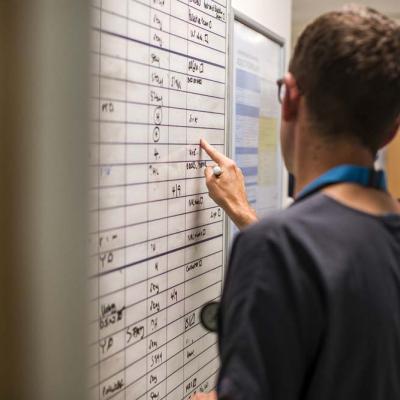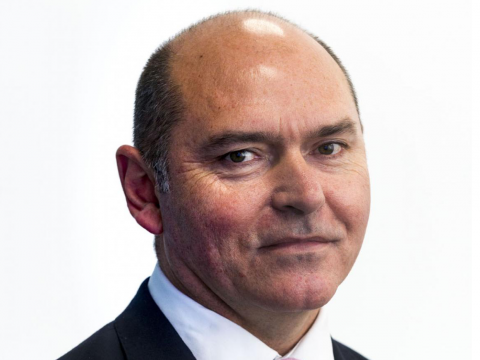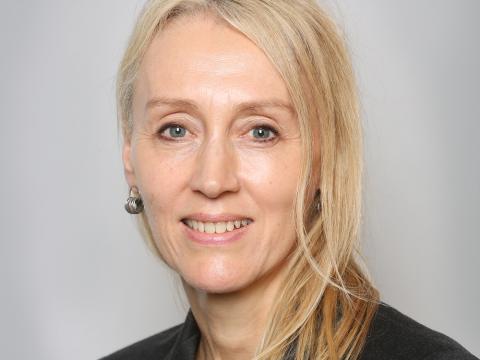Webinar: NHS recovery – how do we ‘build back better’?
Thursday 21 October 2021, 9.00–10.15

5.6 million people are now on the waiting list for elective care in England; the highest since records began. It is more than five years since the 18-week referral to treatment target was last met. And the waiting list is expected to grow further, with as many as 8 million people who would normally have been expected to be referred for treatment going unreferred during the pandemic. Longer waiting lists and waiting times is first and foremost bad news for people who need care but they also present risks for the NHS and for government.
In our webinar, our expert panel explored the following questions:
- How does the health sector approach this monumental task?
- What lessons can we learn from the successful ‘war on waiting’ of the 2000s and what do we need to do differently this time?
- With NHS staff stretched to the limit, what can be done to ensure the workforce is there to deliver the recovery?
- How do we ensure we take advantages of the opportunities and ‘build back better’ for the future?
- And what are the risks to this government from the NHS, in particular waiting lists?
Speakers
Clinical lead for the innovative and award winning POPS (Perioperative medicine for Older People undergoing Surgery) service.
Honorary Reader at King’s College London and Associate Professor at University College London, with research interests including preoperative assessment and optimisation, health services research focusing on perioperative pathways and postoperative delirium.
Education and training role, having established the first foundation and specialist registrar training programmes in perioperative medicine, co-authored e-learning modules, MSc modules and multiple textbook chapters.
National roles include Deputy Director for Centre for Perioperative Care, Vice President Clinical Quality British Geriatrics Society and involvement in a variety of steering, advisory and guideline groups (NELA, RCoA, BGS and NICE).

Sir James returned to his role as Chief Executive of Northumbria Healthcare NHS FT in November 2017 after a two-year secondment in a national role as Chief Executive of NHS Improvement.
He was knighted in 2018 for services to healthcare and has been at the forefront of the region’s response to the Covid-19 pandemic, which saw his Trust set up its own factory to make PPE.
Sir James is also Chair of the NHS Customer Board for Procurement and Supply.
Sir James has recently been appointed by NHS England and NHS Improvement as a National Policy Adviser for the Elective Programme supporting the national team to find new ways to address the elective backlog.

Richard Sloggett is the Founder and Programme Director of Future Health. He was previously a Senior Fellow at Westminster’s leading think tank Policy Exchange and from 2018-19 was Special Advisor to the Secretary of State for Health and Social Care. Richard is a regular commentator in the national media on health and social care including in The Times, Telegraph, Financial Times, Economist and on Times Radio and LBC. He has been named as one of the top 100 people in UK healthcare policy by the Health Service Journal.
During his time with the Secretary of State, Richard worked across Whitehall, the NHS and local government on major policy decisions including the NHS Long Term Plan, the creation of NHSX and the Prevention Green Paper. He also supported Ministers on global healthcare issues including preparations for the G7 and action on antimicrobial resistance. He has fifteen years’ experience in public policy and healthcare, starting his career in Parliament before a successful career in public affairs where he led a team of 20 to the prestigious Communique Public Affairs Team of the Year Award.
Richard is undertaking his doctoral thesis in preventative healthcare systems at Liverpool University. He has a Masters Degree with Distinction from the University of Nottingham and a Bachelors Degree from the University of Durham. He is a Non-Executive Director and Trustee of Real Life Options, a provider of learning disability, autism and age related needs services.

Will is Director of Improvement at the Health Foundation. He is responsible for a number of initiatives supporting the Foundation’s work to improve the quality of health care services.
This includes an ambitious programme of activity and funding, involving partners from academia, the NHS and the wider health and care system, to test, evaluate and share lessons about how to improve care more effectively and efficiently. It also comprises the development of people’s skills in leadership and quality improvement approaches. Central initiatives include the Q community, supported by NHS Improvement, connecting people with improvement expertise across the UK, and a collaboration with Cambridge University to develop a research institute, which will produce practical learning about how to improve care.
Will was previously Forum Director for the World Innovation Summit for Health, and Operational Director at the Centre for Health Policy in the Institute of Global Health Innovation at Imperial College London, where he is an honorary research fellow. Prior to this, Will worked in the NHS as Head of Operations for Women’s and Children’s services at St. Mary’s Hospital and Queen Charlotte and Chelsea Hospital, and as a management consultant at KPMG. While working in the NHS, Will undertook the GenerationQ Fellowship, gaining a postgraduate qualification in leadership and quality improvement.

Chair
Jennifer was Chief Executive of the Nuffield Trust from 2008 to 2013. Prior to this, she was Director of Policy at The King’s Fund and was the policy advisor to the Chief Executive of the National Health Service between 1998 and 2000. Jennifer has undertaken research and written widely on health care reform both in the UK and internationally.
Originally trained in medicine, Jennifer practised mainly paediatric medicine, prior to a career in policy analysis. She has a Master’s in public health and a PhD in health services research from the London School of Hygiene and Tropical Medicine. In 1990–91, Jennifer was a Harkness Fellow in New York.
Jennifer has served as a Board member on several national regulatory bodies: the Health Care Commission 2004–2009; the Audit Commission 2003–2012; and the Care Quality Commission 2013–2016. She has led two national inquiries for government: on the setting up of published ratings of quality of NHS and social care providers in England (2013); and on the setting up of ratings for general practices (2015). She was also a member of the Parliamentary Review Panel for the Welsh Assembly Government advising on the future strategy for the NHS and social care in Wales (2017–2018).
In 2009, Jennifer was elected a fellow of the Royal College of Physicians, and in 2019 was elected as a fellow of the Academy of Medical Sciences. She was awarded a CBE for services to public health in 2013, and a Doctor of Science from Bristol University in 2016. She has held visiting professorships at the London School of Hygiene & Tropical Medicine, the London School of Economics, and Imperial College Business School.

Related analysis
Further reading
Work with us
We look for talented and passionate individuals as everyone at the Health Foundation has an important role to play.
View current vacanciesThe Q community
Q is an initiative connecting people with improvement expertise across the UK.
Find out more

